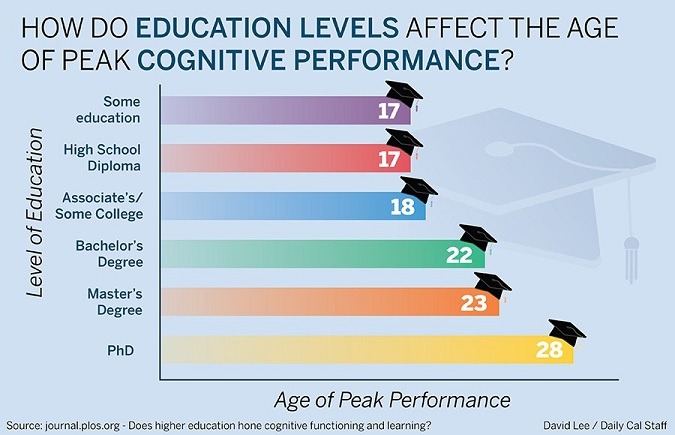Belén Guerra-Carrillo to speak about Cognition, Learning and How to Conduct a 200,000-participant Study at the 2017 SharpBrains Virtual Summit
 Proud to confirm a new excellent Speaker @ 2017 SharpBrains Virtual Summit (December 5–7th).
Proud to confirm a new excellent Speaker @ 2017 SharpBrains Virtual Summit (December 5–7th).
Belén Guerra-Carrillo is an NSF fellow and a doctoral student at UC Berkeley in Prof. Silvia Bunge’s Building Blocks of Cognition Lab. She is particularly interested in the neural and cognitive mechanisms that give rise to changes that occur as a result of learning, and uses multiple methodologies–eye-tracking, neuroimaging, big data and more– to gain a richer picture of how and when these changes take place, as well as the factors that may influence individual learning trajectories, as evidenced by the fascinating recent study published just two weeks ago and outlined below.
UC Berkeley study links cognitive longevity to higher education (The Daily Californian):
“A study led by campus researchers found that higher levels of education are linked to later ages of peak cognitive performance…The team was able to use anonymous data gathered from almost 200,000 subscribers to Lumosity, an online cognitive training program, whose users consented that their results could be used for scientific research. Lumosity became involved in the study through its Human Cognition Project, which aims to provide researchers with cognitive data from Lumosity’s training tools…
According to the study, the test population was split into educational categories, with minimal differences in performance between those with a bachelor’s degree and a high school diploma compared to differences between those with a doctorate and a high school diploma. For each educational category, the data also indicated that peak cognitive performance occurs around the age of graduation…
When the team first started the study, it had three potential predictions: that there would be no improvement at all, that people who started with a lower level of education would improve more or that people with a higher education would learn more. Their results, however, showed that everyone was learning more, not just those with higher levels of education.”
The Study in more Detail
- Abstract: Attending school is a multifaceted experience. Students are not only exposed to new knowledge but are also immersed in a structured environment in which they need to respond flexibly in accordance with changing task goals, keep relevant information in mind, and constantly tackle novel problems. To quantify the cumulative effect of this experience, we examined retrospectively and prospectively, the relationships between educational attainment and both cognitive performance and learning. We analyzed data from 196,388 subscribers to an online cognitive training program. These subscribers, ages 15–60, had completed eight behavioral assessments of executive functioning and reasoning at least once. Controlling for multiple demographic and engagement variables, we found that higher levels of education predicted better performance across the full age range, and modulated performance in some cognitive domains more than others (e.g., reasoning vs. processing speed). Differences were moderate for Bachelor’s degree vs. High School (d = 0.51), and large between Ph.D. vs. Some High School (d = 0.80). Further, the ages of peak cognitive performance for each educational category closely followed the typical range of ages at graduation. This result is consistent with a cumulative effect of recent educational experiences, as well as a decrement in performance as completion of schooling becomes more distant. To begin to characterize the directionality of the relationship between educational attainment and cognitive performance, we conducted a prospective longitudinal analysis. For a subset of 69,202 subscribers who had completed 100 days of cognitive training, we tested whether the degree of novel learning was associated with their level of education. Higher educational attainment predicted bigger gains, but the differences were small (d = 0.04–0.37). Altogether, these results point to the long-lasting trace of an effect of prior cognitive challenges but suggest that new learning opportunities can reduce performance gaps related to one’s educational history.
- Citation: Guerra-Carrillo B, Katovich K, Bunge SA (2017) Does higher education hone cognitive functioning and learning efficacy? Findings from a large and diverse sample. PLoS ONE 12(8): e0182276. https://doi.org/10.1371/journal.pone.0182276
To Learn More & Register @ 2017 SharpBrains Virtual Summit:
- 2017 SharpBrains Virtual Summit: Brain Enhancement in the Digital Age (December 5–7th, 2017)



